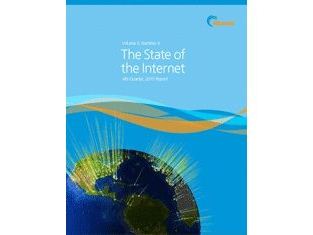Internet access booms following mass outages
New State of the Internet 2011 report

Akamai's annual State of the Internet report has been released this week, with a veritable boatload of useful facts and figures about global net speeds, DDoS attacks, the effects of natural and man-made disasters on the internet and lots, lots more.
Akamai has around 100,000 servers spread across 72 countries worldwide and the company's new report reveals that getting online in many areas of the world has been significantly more difficult for millions in 2011, due to "government action in response to protests, natural disasters or, oddly enough, simply scavenging for scrap metal."
Earthquakes, protests and scrap metal
Clearly the biggest natural disaster of the last year has been the March 11 Tohoku-Oki earthquake in Japan, although mass protests in Egypt and Libya also noticeably impacted on net access in those countries, as authoritarian regimes scrambled to turn off citizens' access to the outside world via the internet.
Plus, there was the rather embarrassing case of the 75-year-old Georgian woman foraging for scrap metal who sawed off the Georgian Railway Telecom utility's the fibre-optic connection, thus cutting off an entire country from the net back in March of this year. Oops!
One interesting aspect of net access after the Japan earthquake is the fact that, following the initial drop-off for a brief period directly after the disaster, "peak levels for traffic delivered to Japan were higher than those seen prior to the earthquake," according to Akamai.
"Likely due to Japanese citizens turning to the Internet for updated news and information on the disaster, as well as in efforts to find and communicate with friends and family."
Get daily insight, inspiration and deals in your inbox
Sign up for breaking news, reviews, opinion, top tech deals, and more.
In Egypt, attempts by the previous authoritarian regime to control net access saw "the volume of traffic being delivered by Akamai to users in Egypt drop precipitously concurrent with these providers being shut down, and remained at near-zero levels for the duration of the outage."
And, yet again, as soon as the internet access was back online, there was a noticeable peak in usage "likely related to pent-up demand for news, social networking, and other types of content from Egyptian users."
Via Ars Technica and Akamai.com
